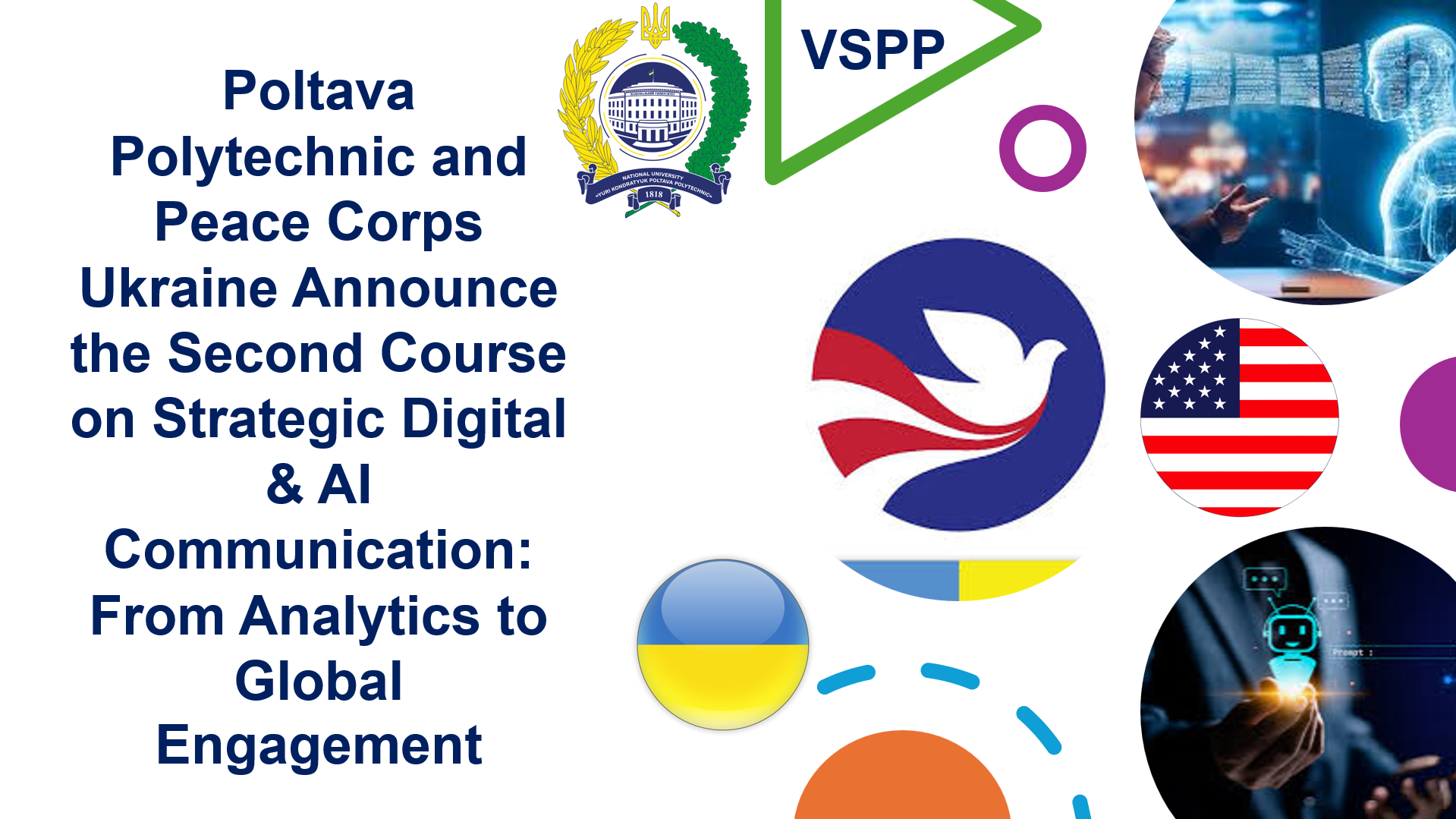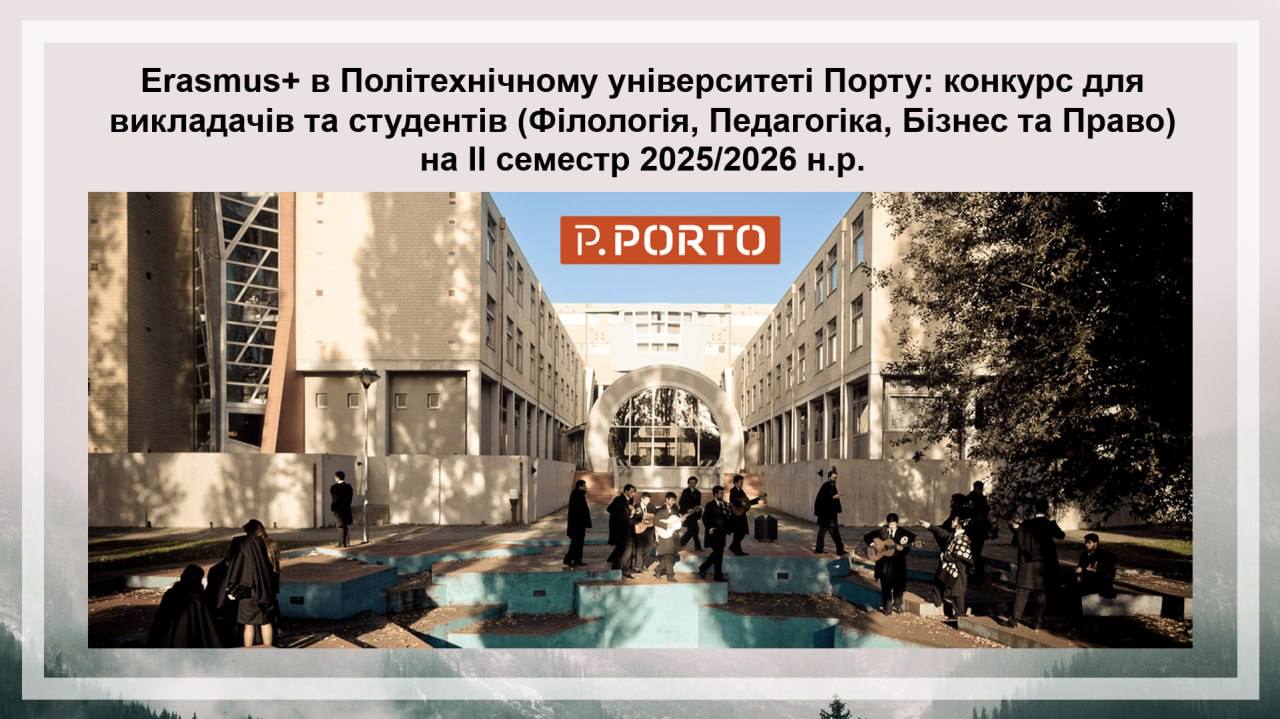Today, a captivating and deeply interactive workshop titled “Elements of Nature in Collage: Uniting Psychology and Design” took place at the Centre for Contemporary Art of the National University “Yuri Kondratyuk Poltava Polytechnic.” Internally displaced students took part in the session.
This event became a symbolic moment that not only brought together students from entirely different academic backgrounds but also revealed powerful art therapy opportunities for each participant. It provided a unique space for creative collaboration, interdisciplinary learning, and, most importantly, profound psychological self-discovery and emotional healing through art.
Senior lecturer of the Department of Fine Arts Olena Ostrohliad, PhD in Psychology, Associate Professor Viktoriia Shevchuk, PhD in Pedagogy, Associate Professor Maryna Teslenko, PhD in Pedagogy, Associate Professor and Acting Head of Department Lesia Klevaka, facilitated the workshop.
The multifaceted concept of the workshop was based on a harmonious blend of creativity, self-exploration, and teamwork, using the inexhaustible richness of natural materials. This approach enabled participants to gain a profound understanding of the symbolism of the four natural elements – Earth, Water, Air, and Fire –and their direct impact on human psychology and emotional states. Attendees had the opportunity to experience firsthand how archetypal images of the elements resonate with inner feelings and how these associations can be applied in therapeutic practice.
Students were given a unique opportunity to explore new forms, textures, and aesthetic solutions, learning how to transform abstract ideas and emotions into tangible visual representations that support awareness and processing.
An additional but equally important goal was to introduce participants to the principles of eco-friendly and sustainable design. Through hands-on creative work with natural materials, students formed a deep connection with nature – a process that has its therapeutic value (ecotherapy), contributing to reduced stress, improved mood, and a sense of grounding.
At the beginning of the session, participants were divided into mixed groups. This was a key element in achieving the main objective – interdisciplinary and interpersonal interaction, which serves as a decisive therapeutic factor. In each group, students collaborated in pairs, sharing knowledge and experience while developing communication, empathy, and mutual support skills. Each group received a specific task requiring them to explore one of the four natural elements – Earth, Water, Air, Fire – through the creation of four different collages. The fundamental requirement was to use only natural materials. This task stimulated creative thinking and encouraged participants to seek unconventional solutions and experiment – an essential condition for stepping outside habitual thought and behaviour patterns.
Throughout the workshop, students actively and energetically discussed the psychological aspects of each element. They analysed symbolism, the profound emotional impact on individuals, and personal associations that each participant experienced. This process of reflection and verbalisation helped enhance self-awareness regarding emotions and inner experiences related to the elements. Participants also learned how to express these psychological concepts through form, composition, material selection, and combinations, emphasising the importance of aesthetics and visual perception.
Creating collages from natural materials not only supported the development of artistic and creative skills but also significantly deepened students’ understanding of eco-conscious design. They experienced firsthand how to produce aesthetic, functional, and harmonious objects while minimising environmental impact and using natural resources efficiently. This practical engagement enabled them to apply the principles of eco-design in their creative work, experimenting with branches, leaves, stones, bark, flowers, and other natural elements. Each collage became not just an artistic piece, but also a reflection of its creators’ inner world, their emotions, and their interpretation of the elements, serving as a tool for non-verbal expression and emotional processing.
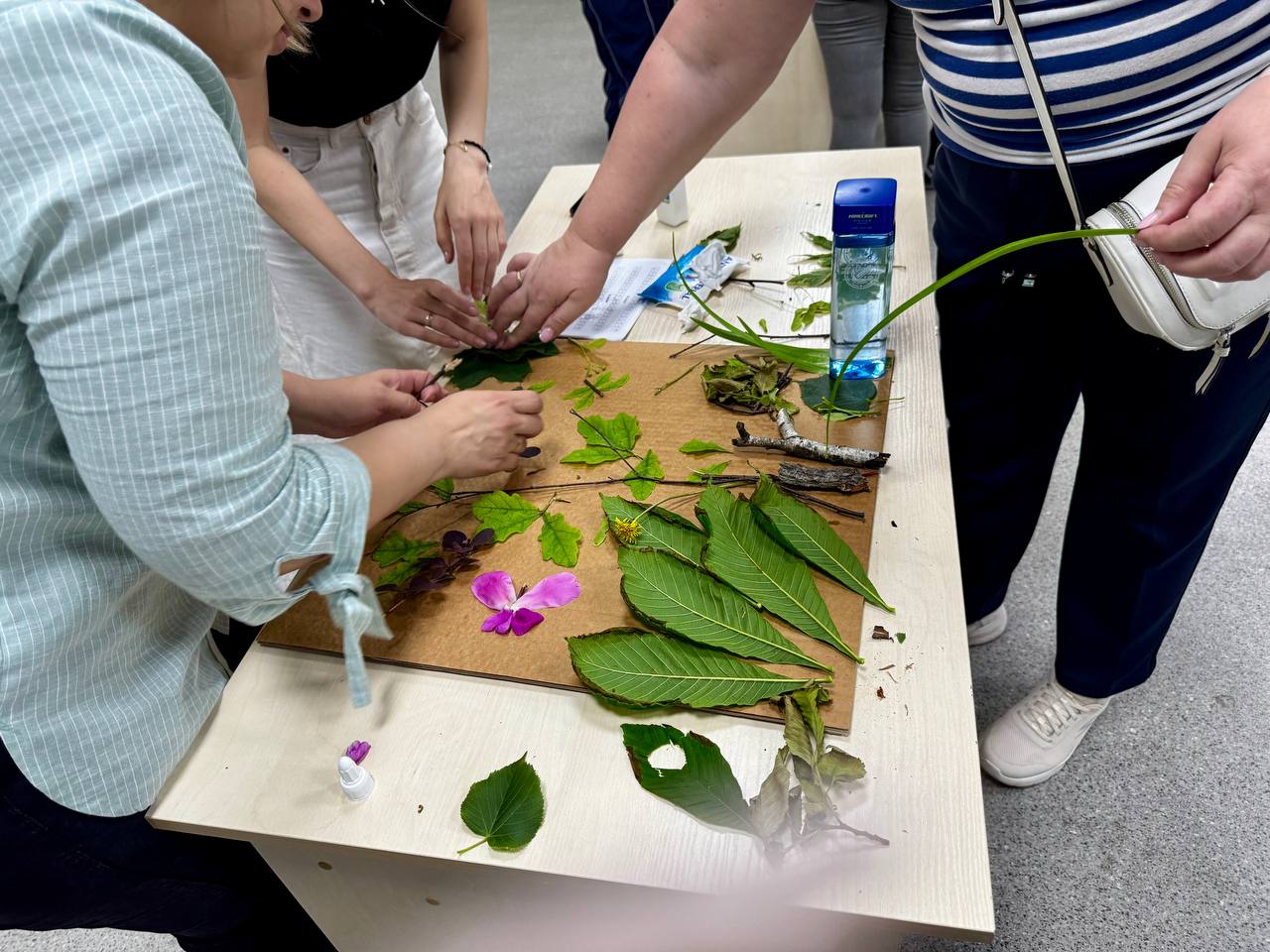
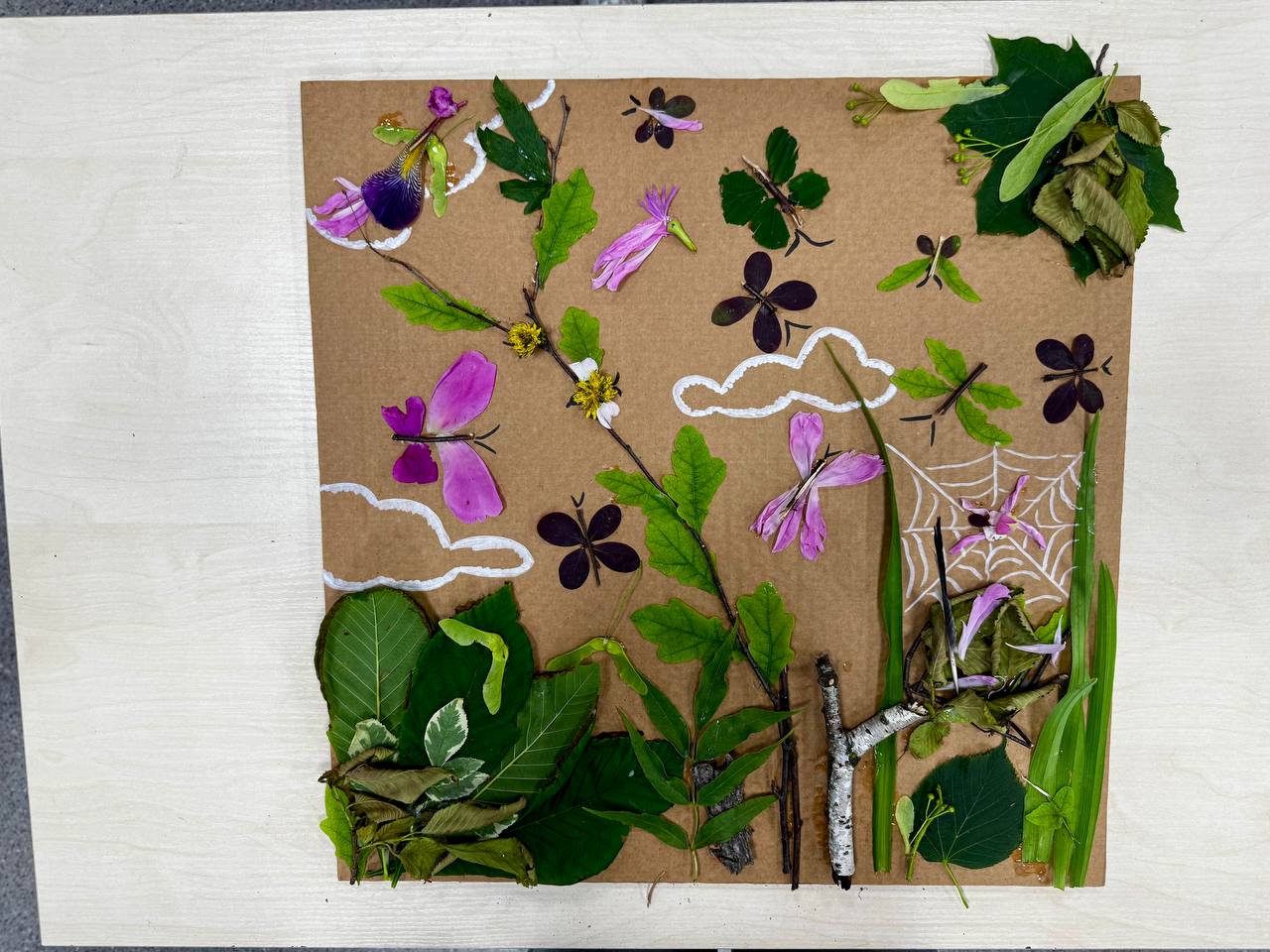
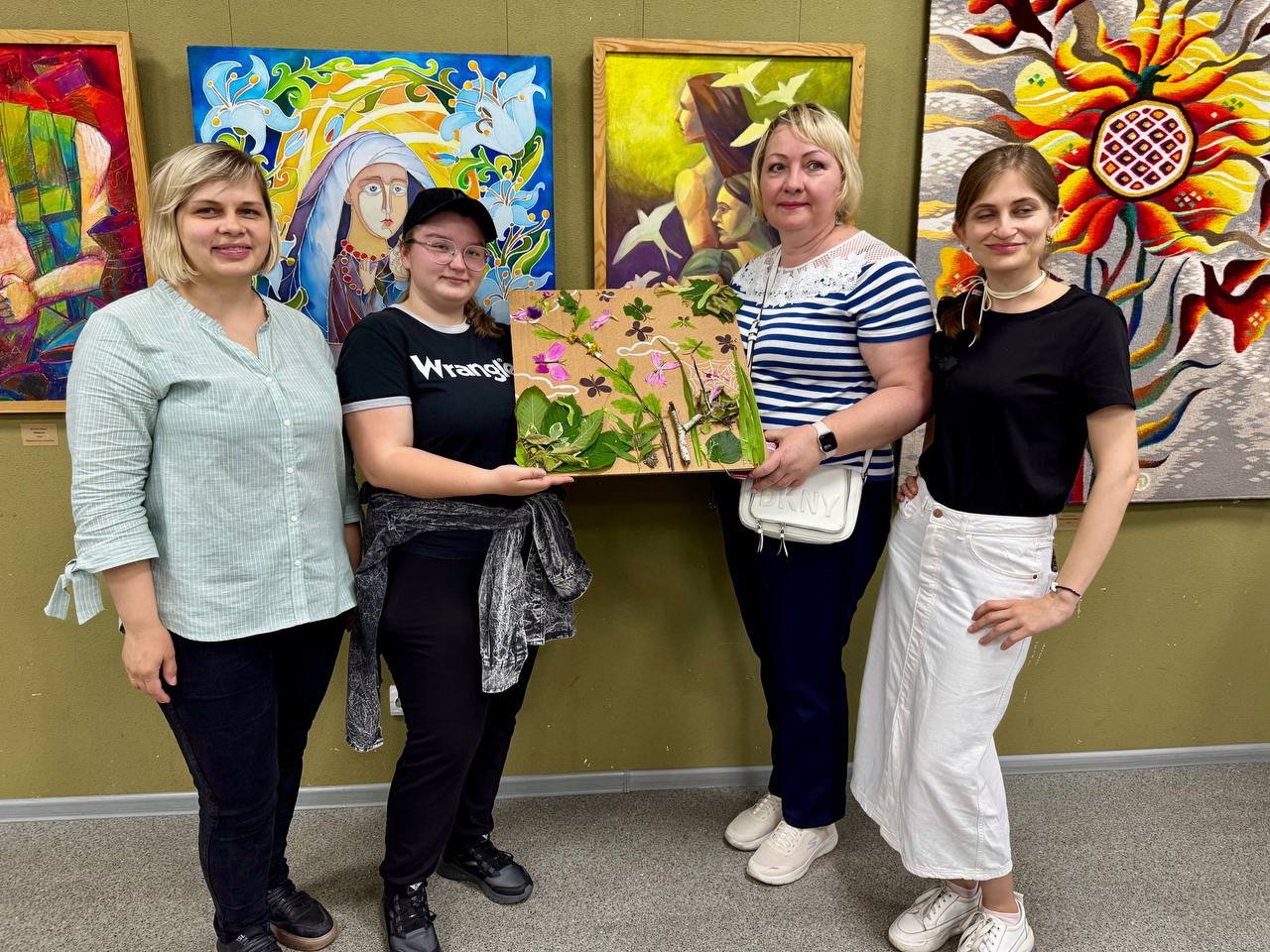
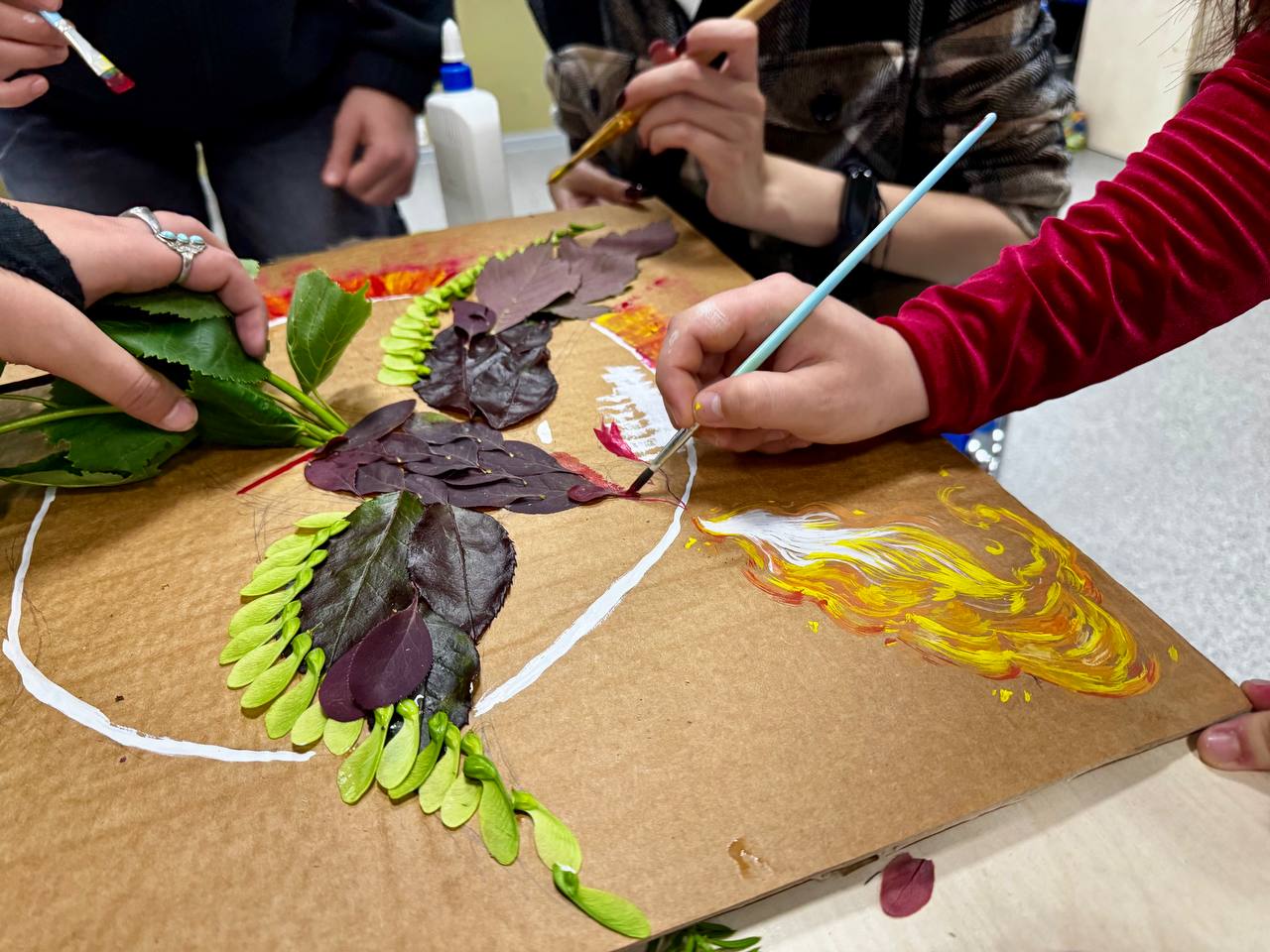
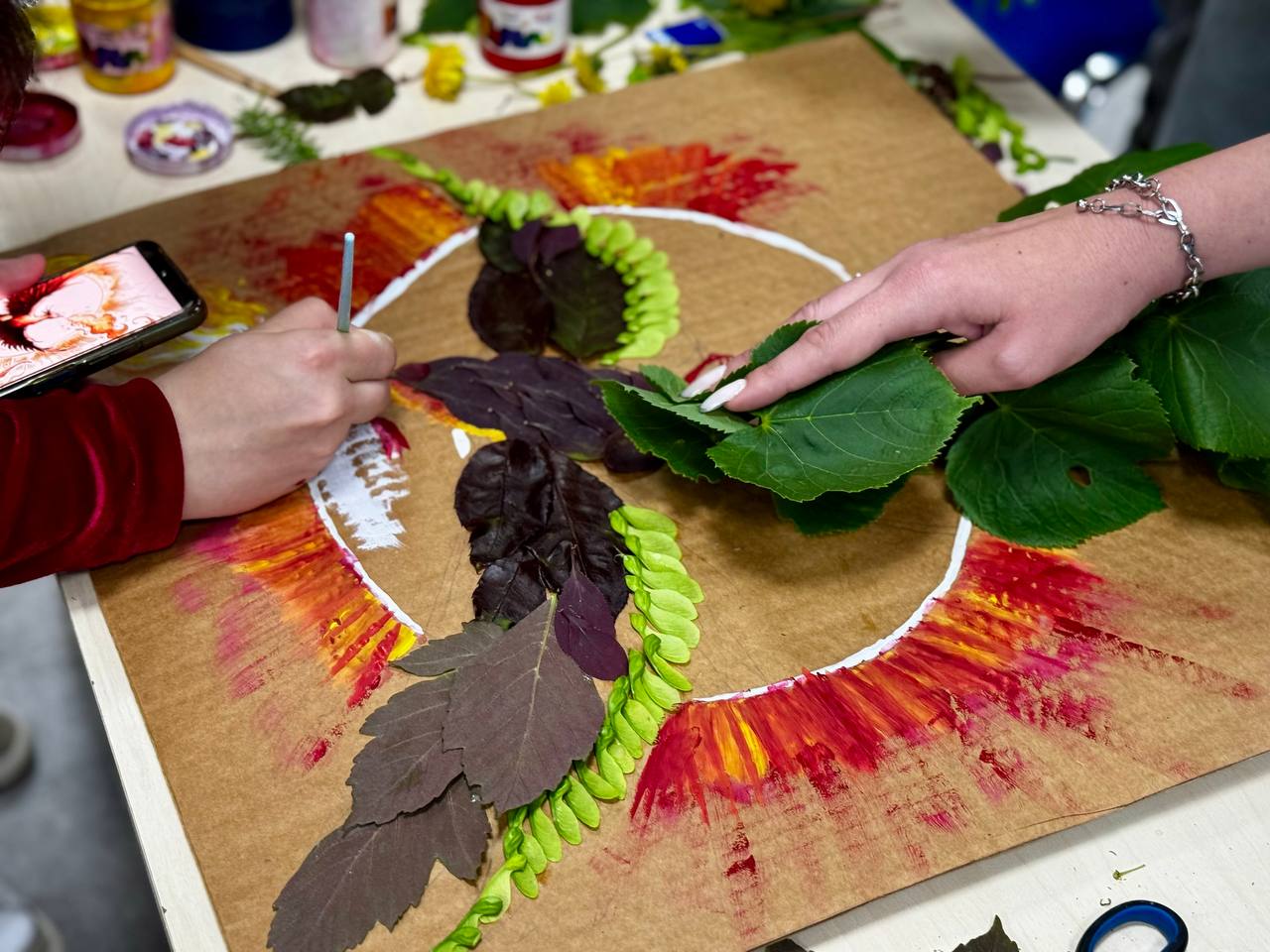
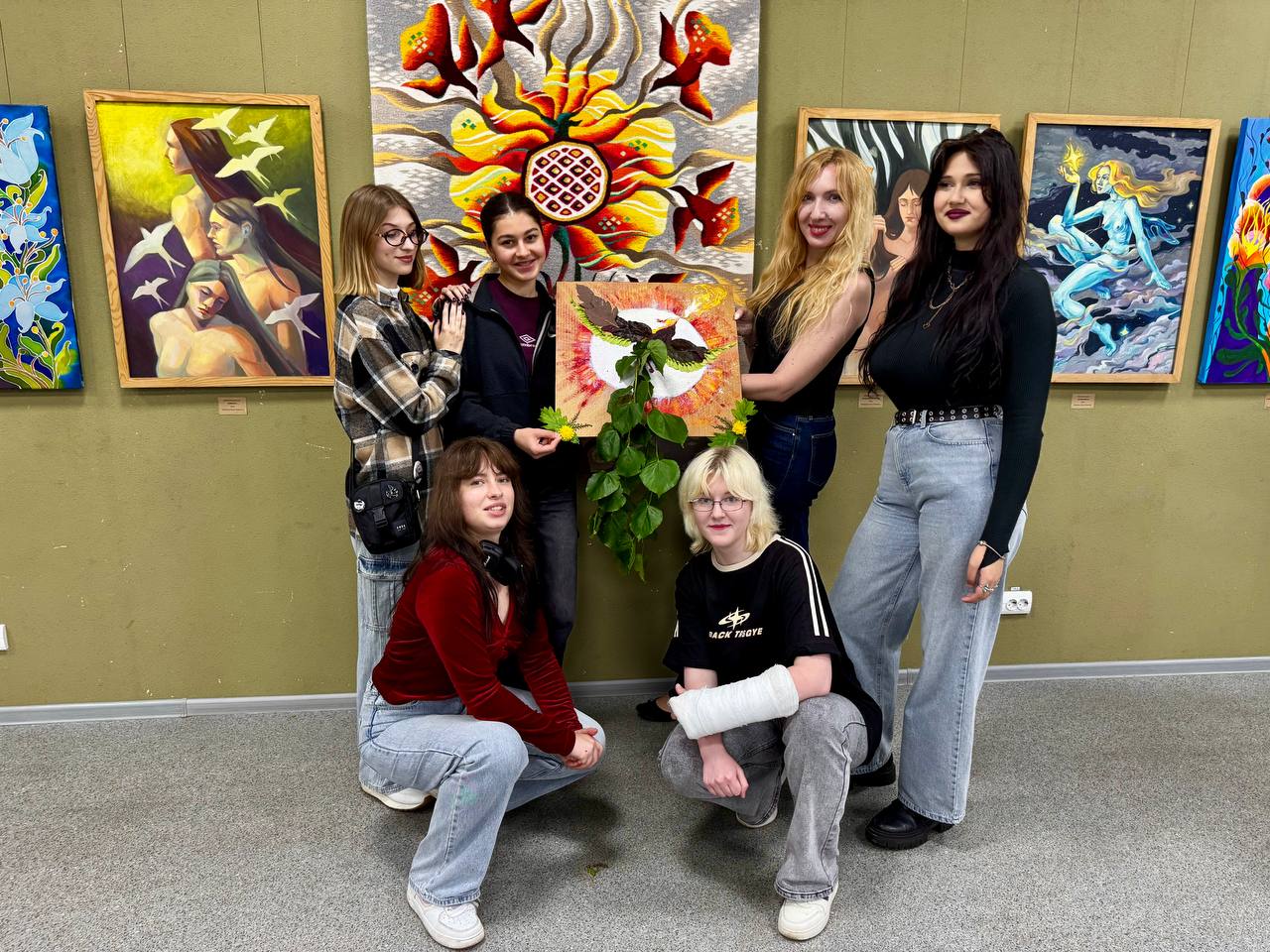
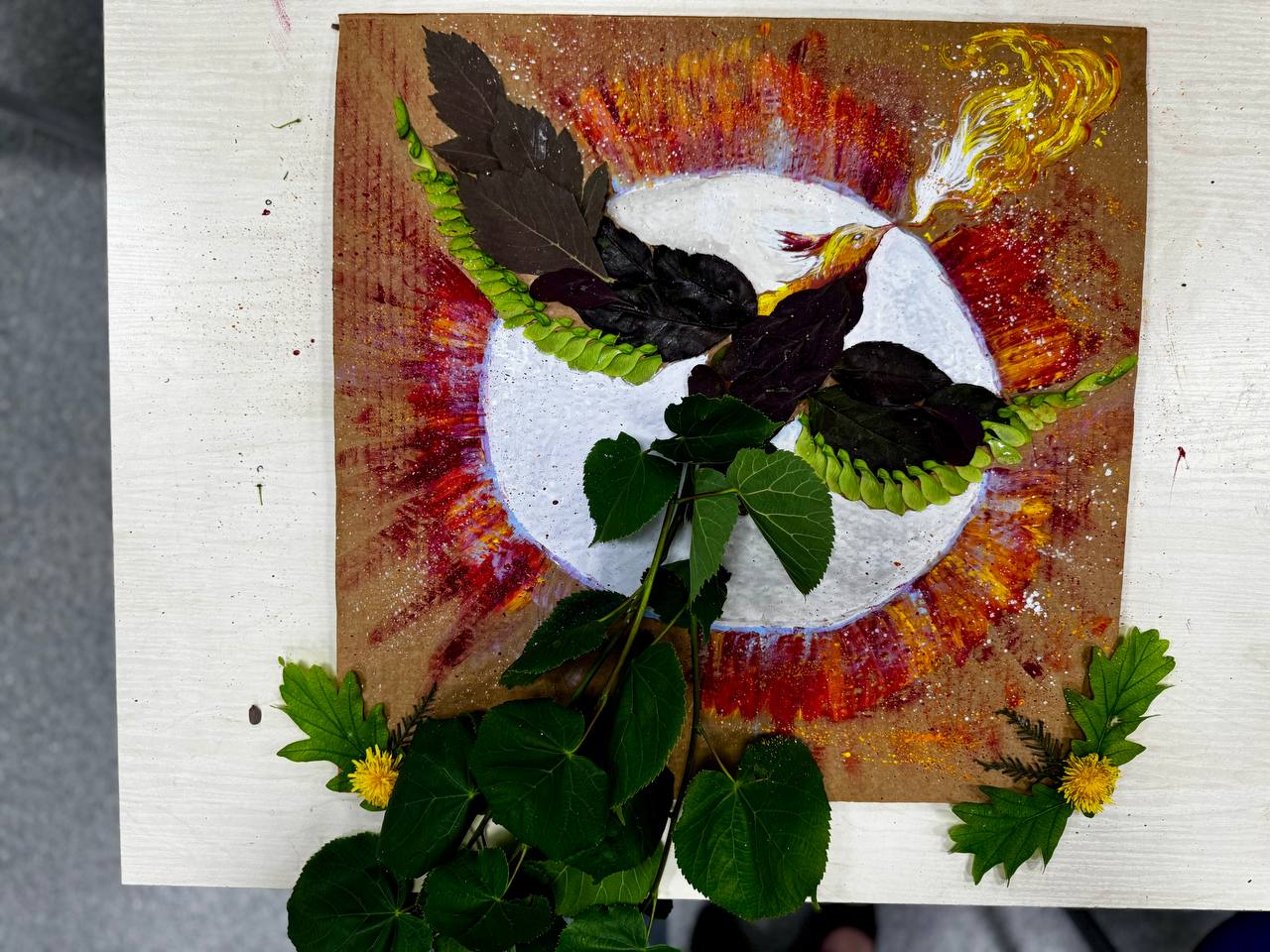
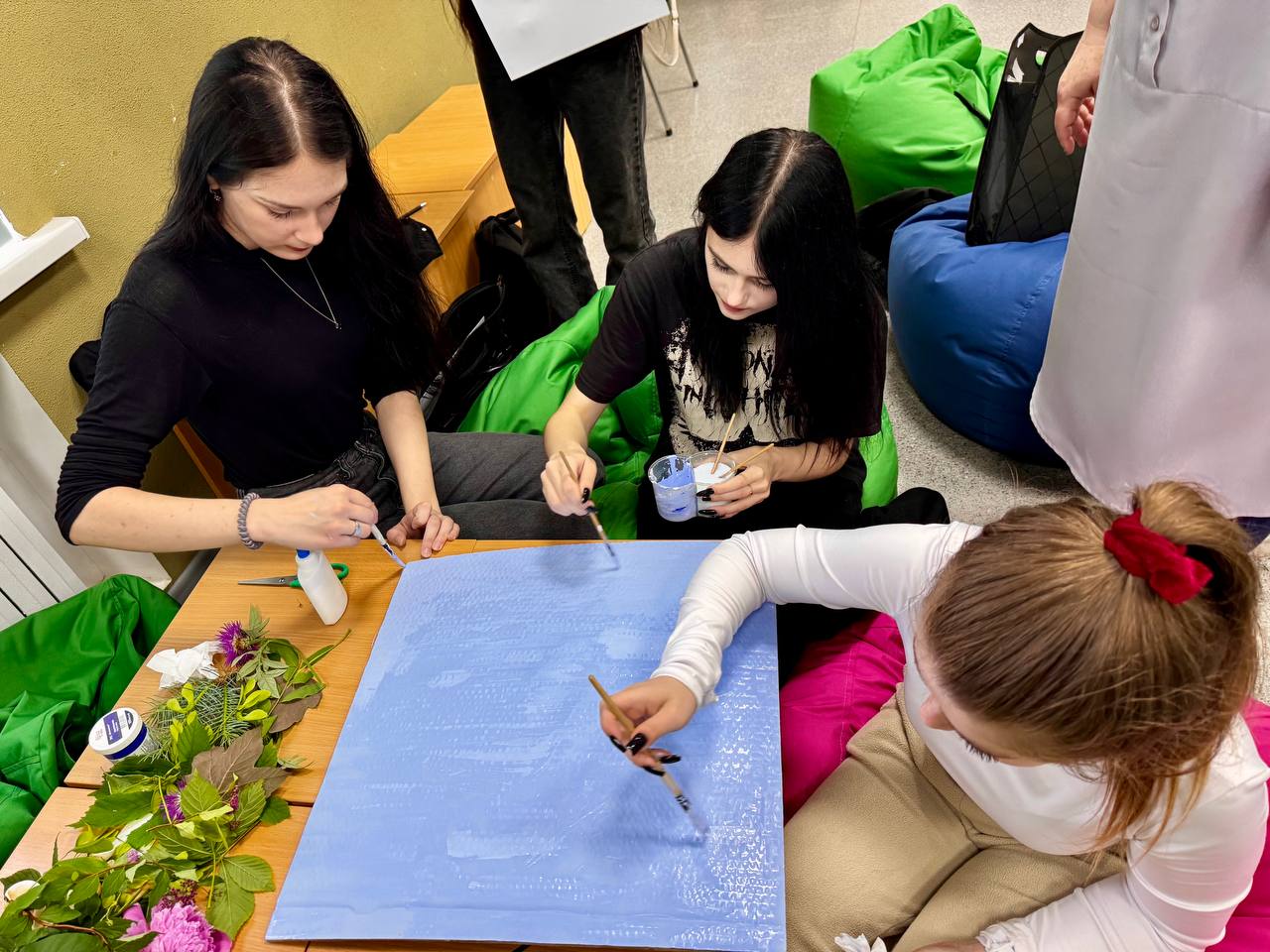
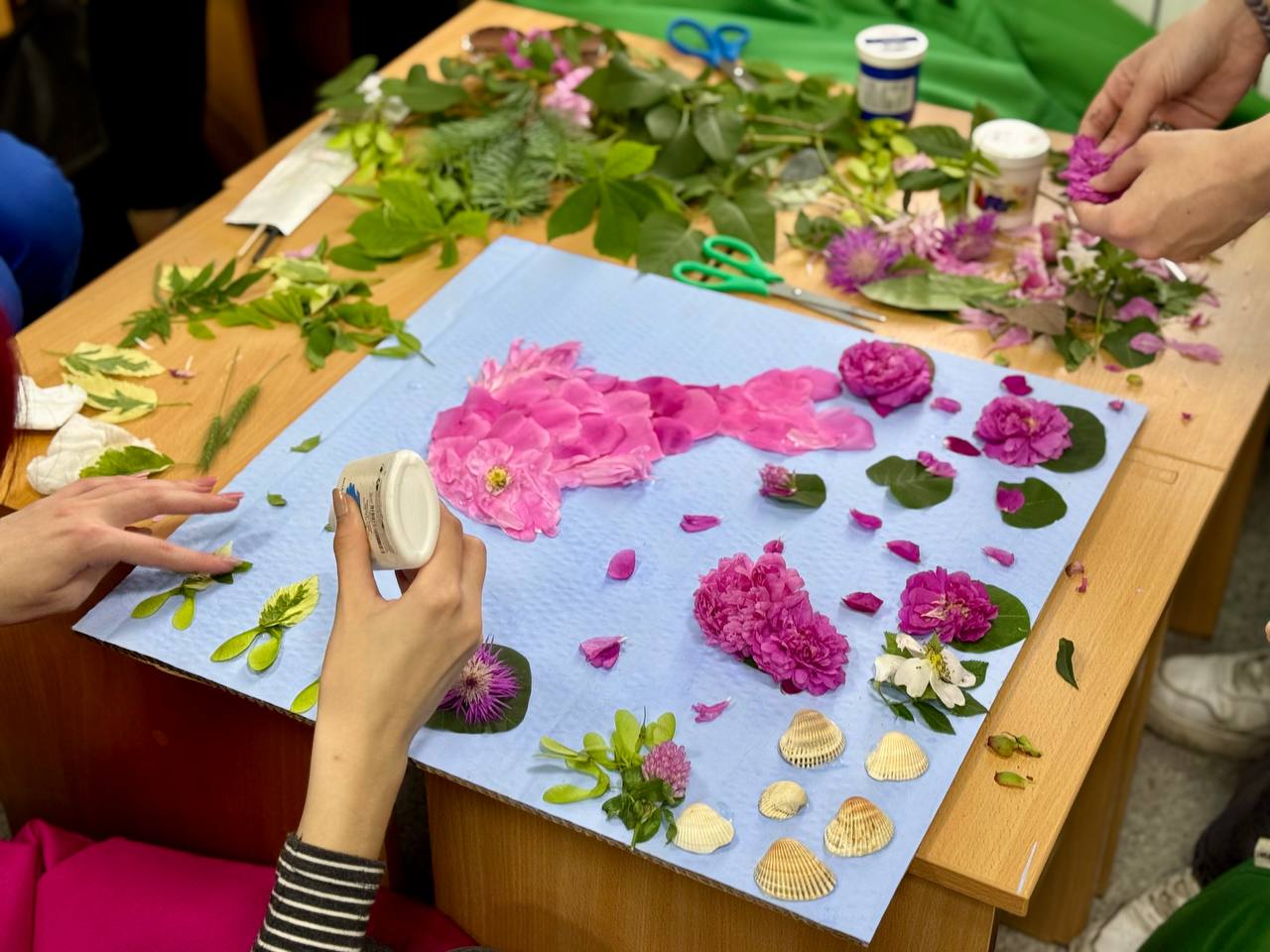
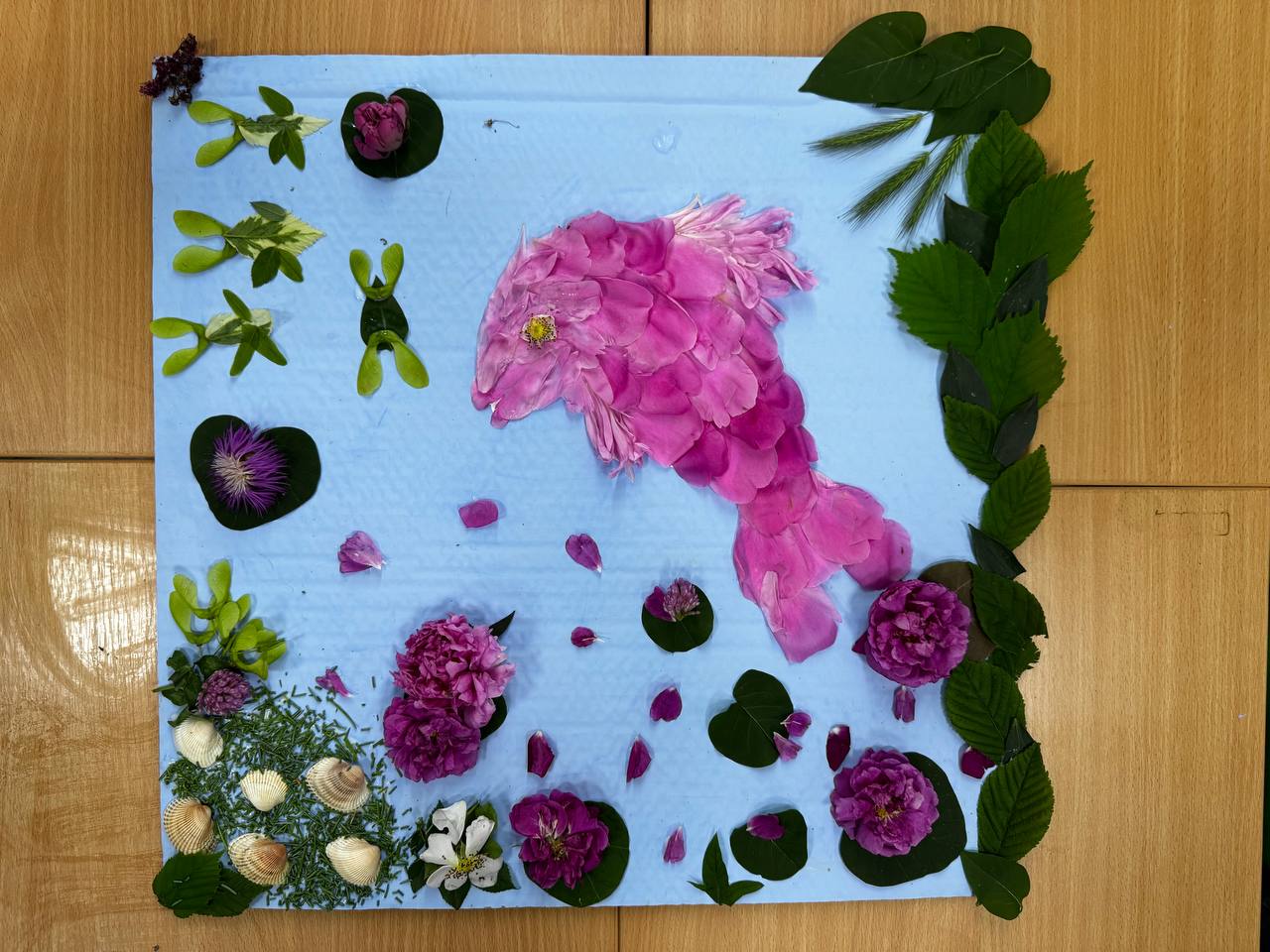
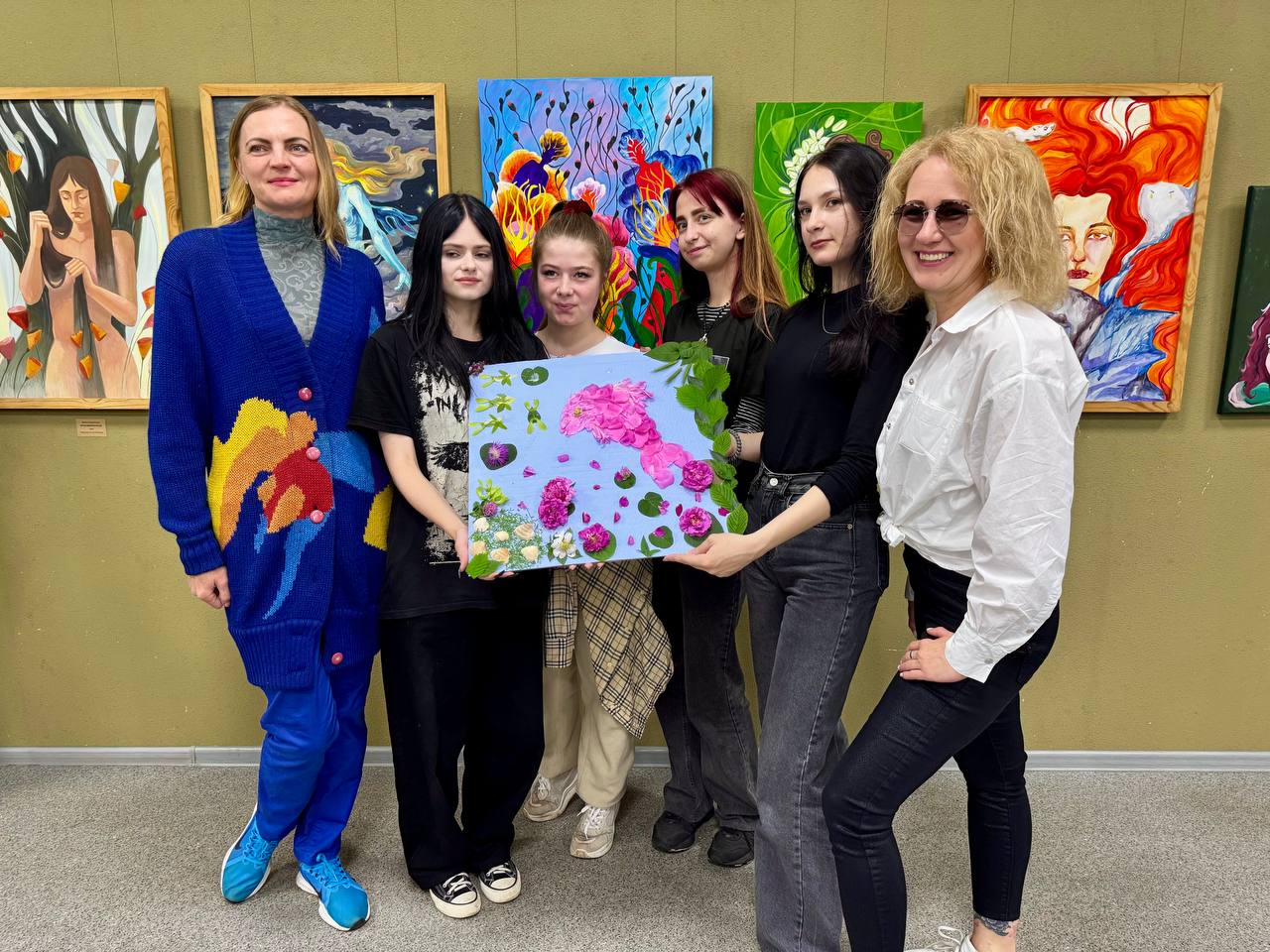
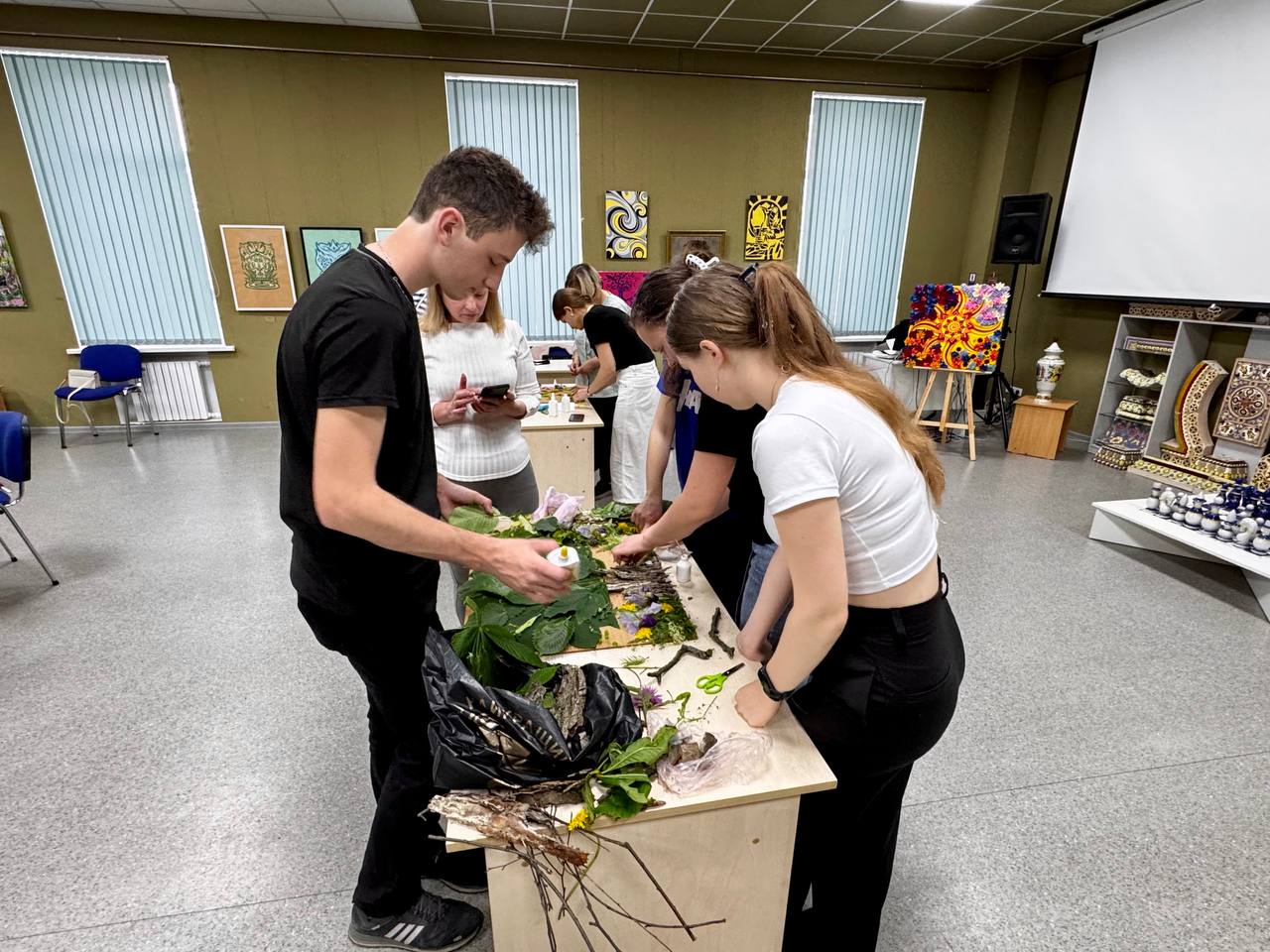
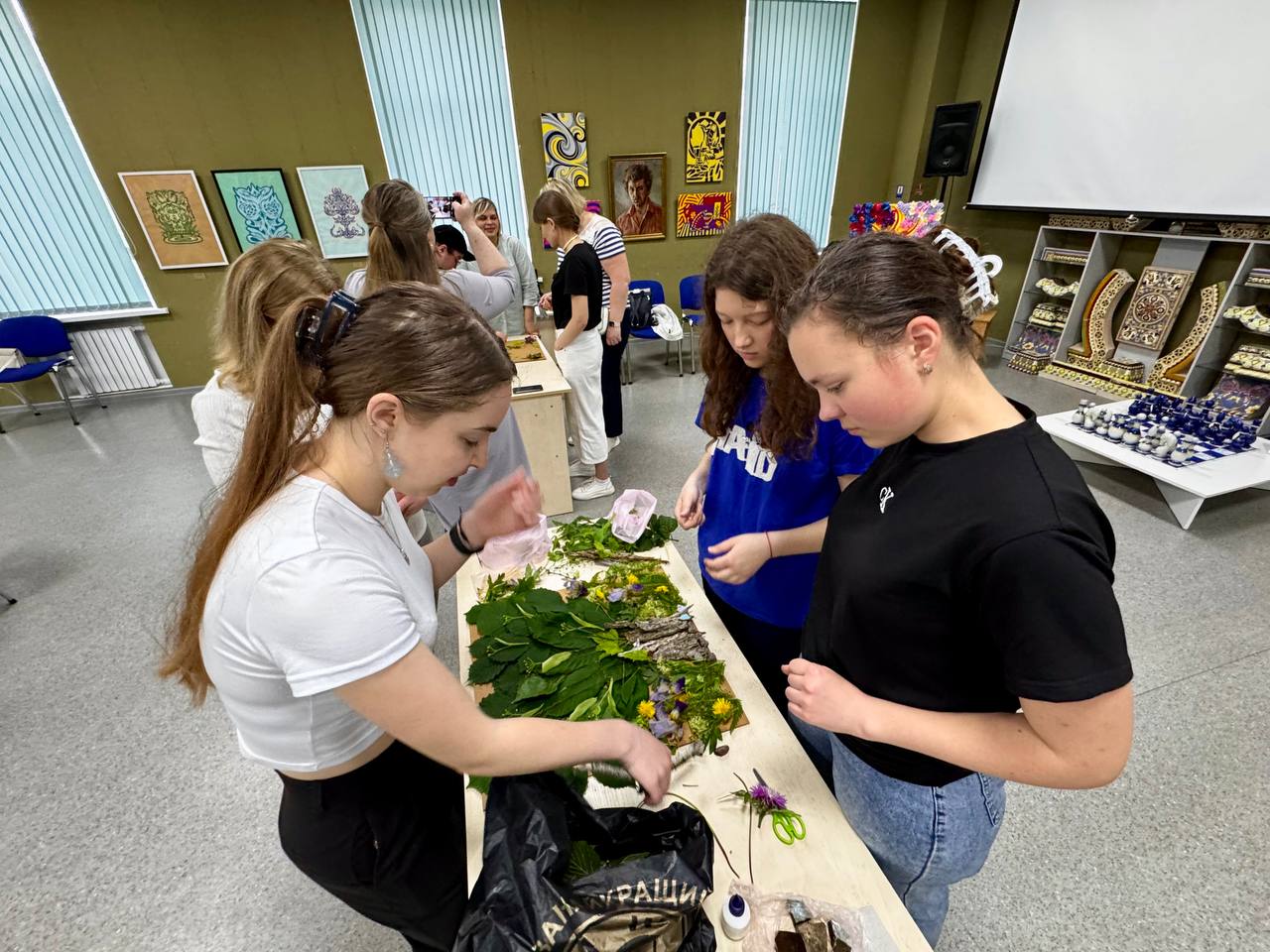
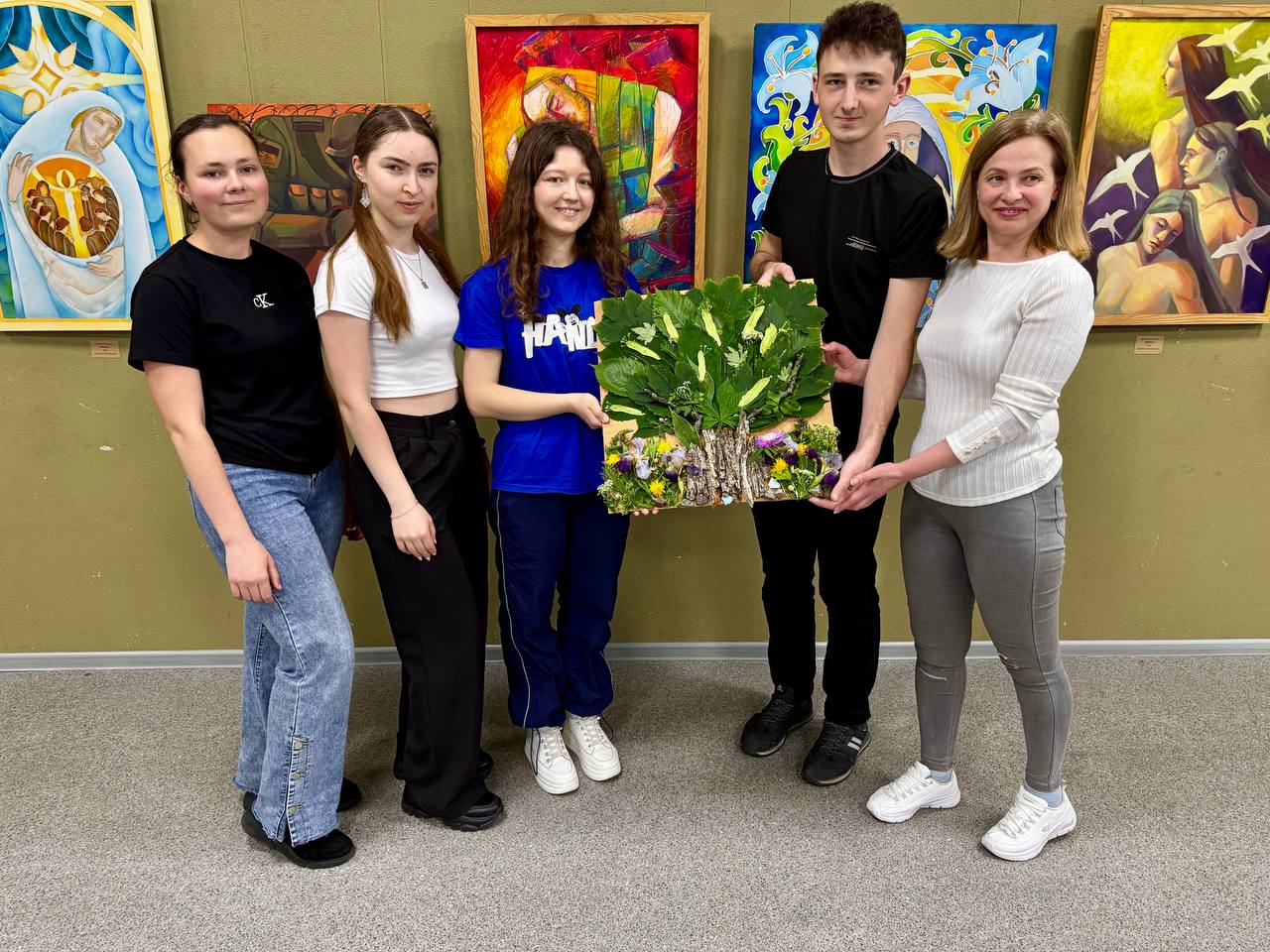
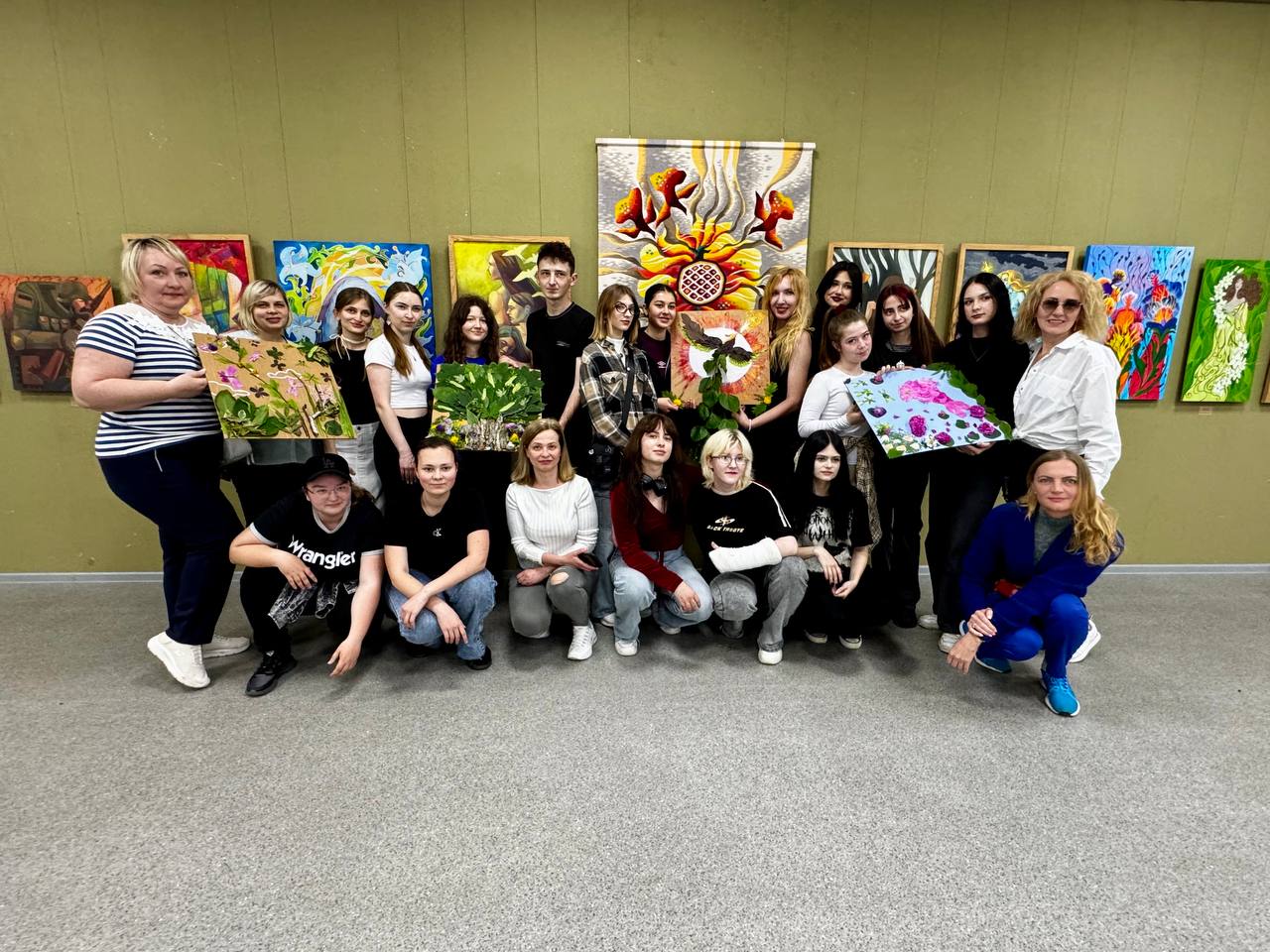
The workshop “Elements of Nature in Collage: Uniting Psychology and Design” served as an outstanding example of successful interdisciplinary collaboration and synergy with a clearly expressed art therapy effect. Students not only created unique artworks but also expanded their knowledge in related fields. They developed critically essential skills such as teamwork, communication, problem-solving, and out-of-the-box thinking, skills vital for any profession, especially those involving human interaction. The combination of deep psychological analysis and practical design implementation enabled participants to view anew the fundamental relationship between humans and nature, with its powerful elements. This event will undoubtedly leave a lasting impression on their memory, contribute to their professional development, and strengthen their psychological resilience and ability to self-regulate through creativity.
This session marked another meaningful step in the implementation of the Erasmus+ KA220-ADU TRUST project – Trauma of refugees in Europe: An approach through art therapy as a solidarity program for Ukraine war victims (Grant No. 2024-BE01-KA220-ADU-000257527). The project is co-funded by the EU and led by the Centre Neuro Psychiatrique St-Martin from Belgium, in partnership with the National University «Yuri Kondratyuk Poltava Polytechnic» (Ukraine), Greek Carers Network EPIONI (Greece), Fondazione Don Luigi Di Liegro (Italy), Lekama Foundation (Luxembourg), EuroPlural Project (Portugal).
Additionally, Poltava Polytechnic is currently conducting a series of art therapy sessions as part of the TRUST project. These sessions have included symbolic activities such as designing personal coats of arms to represent inner values, sources of strength and hope; associative drawing exercises; the “Relationships” activity aimed at reflecting on personal connections with loved ones, community, and country; discussions around “What does mental health mean to me?”; neurographic drawing; and immersion in body-oriented therapy where movement, dance, and physical expression become key tools for emotional release and recovery.
Media Centre of
National University “Yuri Kondratyuk Poltava Polytechnic”

